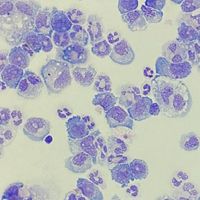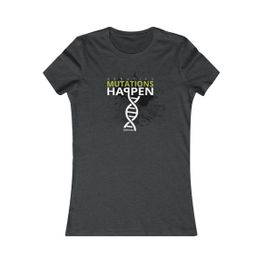T Helper Cells Improve Antigen Presentation for Cytotoxic T Cell Immunity
A significant gap in the field of immunology is the process by which immune cells communicate to elicit an effective immune response. T cells are immune cells with multiple functions. There are also subpopulations of T cells with specific functions to aid immunity. T helper cells are one subpopulation that indirectly activates T cells that stimulate antigen-presenting cells (APCs). Antigen-presenting cells express proteins on their surface to activate cytotoxic T cells, which kill infected cells. A recent paper in Nature Immunology by a Germany-based group outlined the relationship between T helper cells and APCs. Three critical takeaways are discussed below.
First, a group of researchers led by Dr. Sammy Bedoui at the University of Bonn investigated the process of APC stimulation via T helper cells; they determined that the sequence of events is critical to stimulate APCs and generate an immune response. The order by which APCs become stimulated is crucial because it establishes a stepwise process. Researchers can now improve T cell activation by developing treatments targeting specific APC stimulation stages.
Second, Bedoui and colleagues also discovered a group of proteins activated in APCs. The group of stimulatory proteins was found to be necessary for the promotion of cytotoxic T-cell activation. The absence of the grouped proteins did not elicit a response. The proteins for effective APC function are paramount to the study of T-cell biology. In this case, the proteins discovered to play a critical role in T-cell activation can be further explored and used as therapeutic targets.
Third, the findings reported by Bedoui and colleagues in non-human models were further validated in patient samples. Researchers took coronavirus disease 2019 (COVID-19) patient samples and found that mild COVID-19 symptoms are associated with APCs primed by T helper cells. A highlight of the study includes the use of patient samples because it refers to the applicable nature of the work. More specifically, the findings in comparative, non-human models can also be found in human samples, which makes the mechanism translatable to human biology. Most biological mechanisms are found in other non-human models; therefore, researchers must validate mechanisms in human samples to improve treatment and patient health.
Overall, Bedoui and colleagues defined the mechanism of APC stimulation through T helper cells. Prior to this paper, the process of APC stimulation by T helper cells was unclear. How the process occurs is now defined and has many implications. The mechanism can be used to better boost the immune system by generating more effective APC priming for cytotoxic T-cell activation. It also improves the field of T-cell biology by defining a process not previously understood. Altogether, these new findings can help us better appreciate how our immune system functions and provide insight into better treatments for patients.
Paper, APCs, Nature Immunology, Sammy Bedoui, University of Bonn

















































